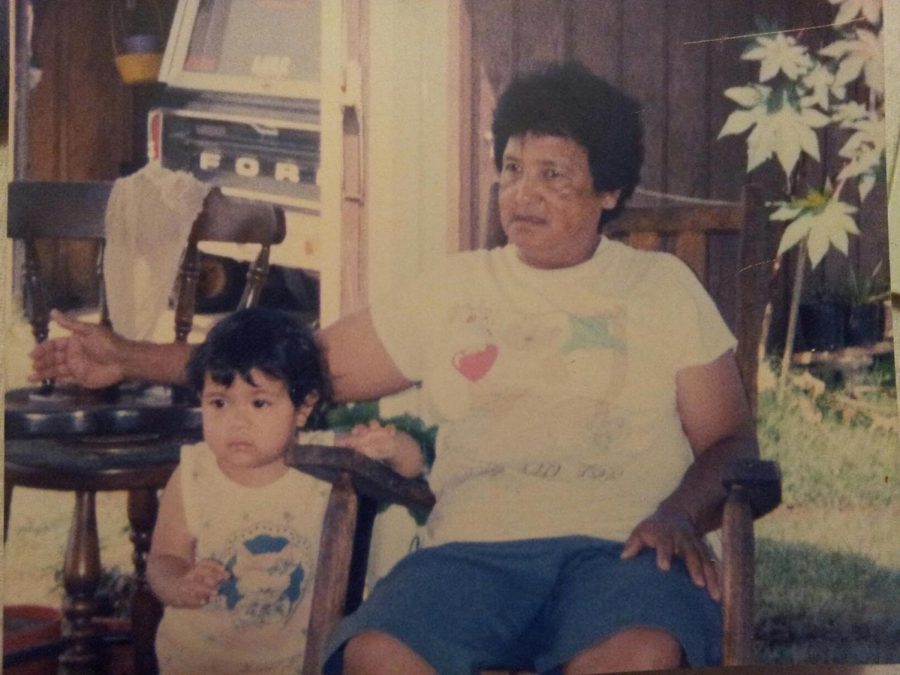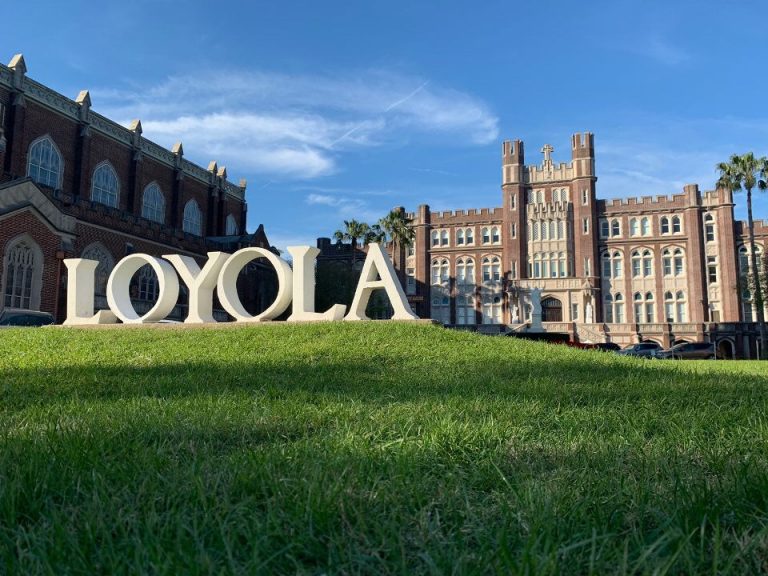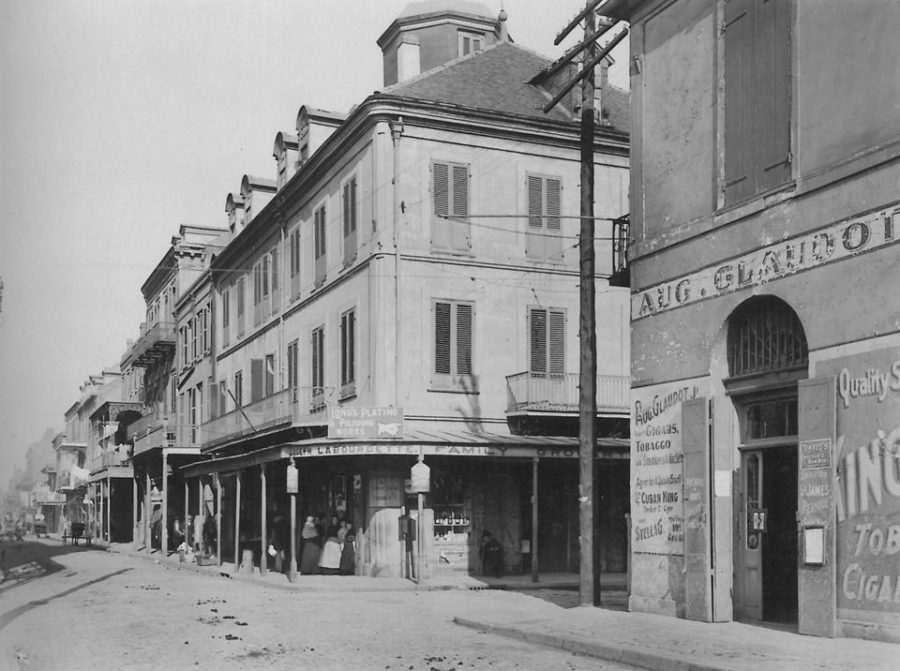As a first-generation Native American student at a four-year university, I am overwhelmed and humbled to be amid many professionals and welcomed into a diverse Jesuit university like Loyola University New Orleans.
I am Baley Champagne, a Loyola senior, an indigenous bayou woman, and a descendant of those who still call the gulf coast home. My upbringing has a different twist; unlike others who walked through the doors at Loyola, I was born in this world to unwed parents who had no intention of a future together or one with me. My mom, who became a mother in her teens, was forthcoming that she was not ready to be my mother. Her mother, my grandmother, would become my sole caretaker. My dad had other priorities and never became a consistent parent, as he has been significantly absent through it all.
So, my grandmother raised me the best way she knew how especially after having five children of her own and being a widow, she knew how to raise her village. I was her first grandchild and just 17 years younger than her youngest, my mother. I was overprotected, loved, and respected by my grandmother, as she took me everywhere she would go. My life revolved around her. She was old-fashioned, lived by the lands and the seasons, spoke very little unless it was to correct you. I was a curious child, and my grandmother did not speak on everything I wandered about before she passed, like more in-depth of how was her life in her younger days. She would not speak much of it; although, it defined our place in Terrebonne society.
You see, my grandmother lived in a community that was illiterate, growing in faith, and with tradition passed on from relatives. She was unable to attend a public school because of her native identity. Instead, as a child, she was only allowed to attend a Methodist Indian mission school. School for her was not pleasant. My grandmother could not practice her Native American Louisiana French, and she was made to speak English and learned minimal elementary skills up to the fourth grade. She never taught herself how to read and was limited to writing just her first and last name. It is a familiar story of most of our Native elders along coastal Louisiana, a community in which society limited their capabilities.
In her days as a young woman before the Civil Rights Movement, signs like “No Sabines” (a slur for coastal Louisiana Indians), “No Fitches” (a Native family surname), and “Whites Only,” secluded my relatives, like my grandmother, from businesses. The church was one place everyone could come together in the community, but still, my grandmother and relatives were only permitted to sit in the back of the church, in what remained of the pews, where many still choose to sit today.
Her outlook on life, as I was nearly 58 years her junior, was to put your worries into God’s hands. There was not any way my grandmother could materialistically or literately help mold me for the new world of technology and the trend of the fast-paced world. All five of her children graduated from high school, although it took more time than normal. Finances limited many of their dreams. Two of her sons went into the armed services to travel and pursue work training. So, my grandmother wanted me to work alongside her on a wooden stool by a conveyor belt cleaning gulf coast shrimp for packing in an awful-scented shrimp factory. That smell of shrimp meant a slim sum of financial independence to her and so many. I could not see myself in this environment, nor did I think I was better than anyone who worked there, but I knew there had to be more for me.
Maybe it is just that faith I held onto that brought me to where I am today, graduating this May from Loyola University of New Orleans at the UNO Lakefront Arena on May 16. My grandmother left this Earth nearly ten years ago, but her whispers on her death bed telling me “don’t quit” have kept me going to achieving a dream for her, for me, for our family, and so many.
I will be the first descendant of my four grandparents to achieve a bachelor’s degree, paving the way so others would not have to endure the obstacles I have had to overcome. Only 16% of Native Americans have a bachelor’s degree, According to the Postsecondary National Policy Institute, which advocates for inclusion and research for Native Americans in higher education.
To any who are at a dead-end or a crossroads in whatever situation, remember this quote from Selena Quintanilla-Perez, Mexican-Cherokee descendant: “Always believe that the impossible is always possible.”













Cheryl kinard Kinard • Oct 13, 2022 at 10:12 pm
I really loved your article. BC in brings me back when I started school. I was the first in my family to go to school . And it was hard for me too learn english. When I read it it brought tears to my eyes just reading it . yes it was hard for all of us indians , and it was hard to understand what the teacher was saying , but its took our cousin the teacher aide to interpreted it back to us. So Bailey keep up the good work.
Tomas.m.martinez • May 26, 2021 at 3:20 pm
I enjoyed read about her life. Plus what pushed her to get where she is at.